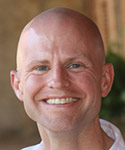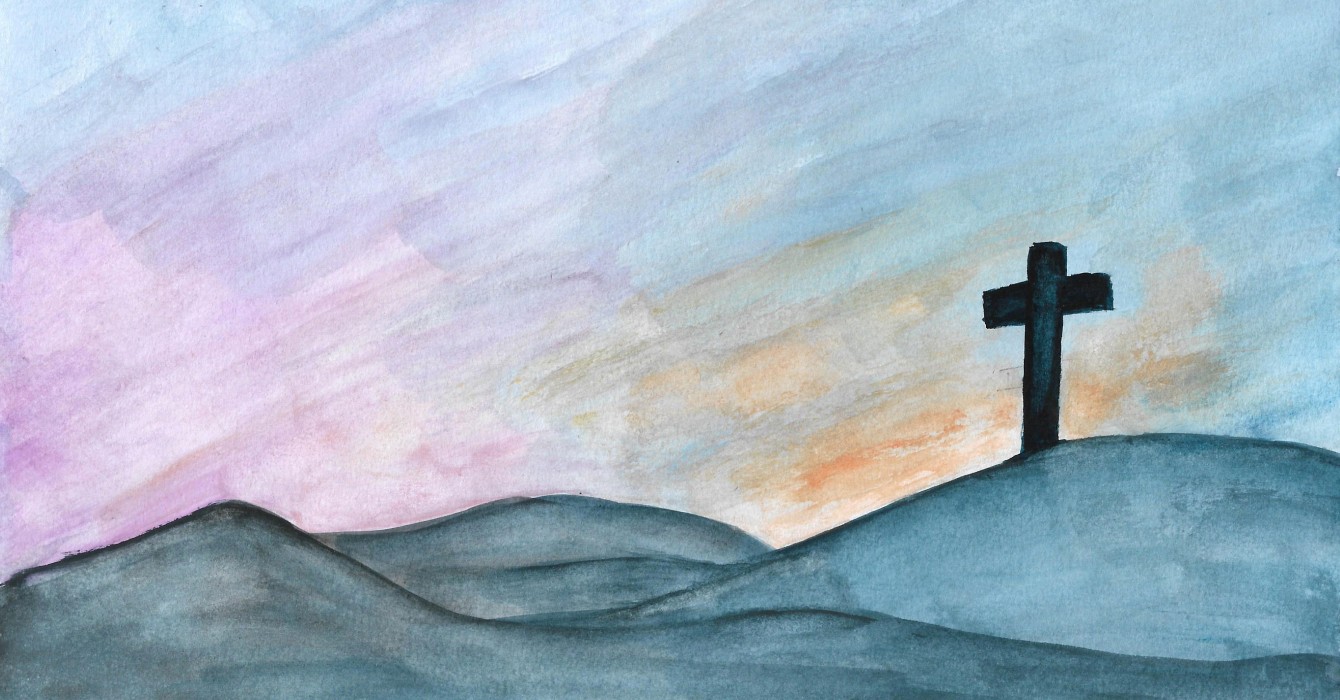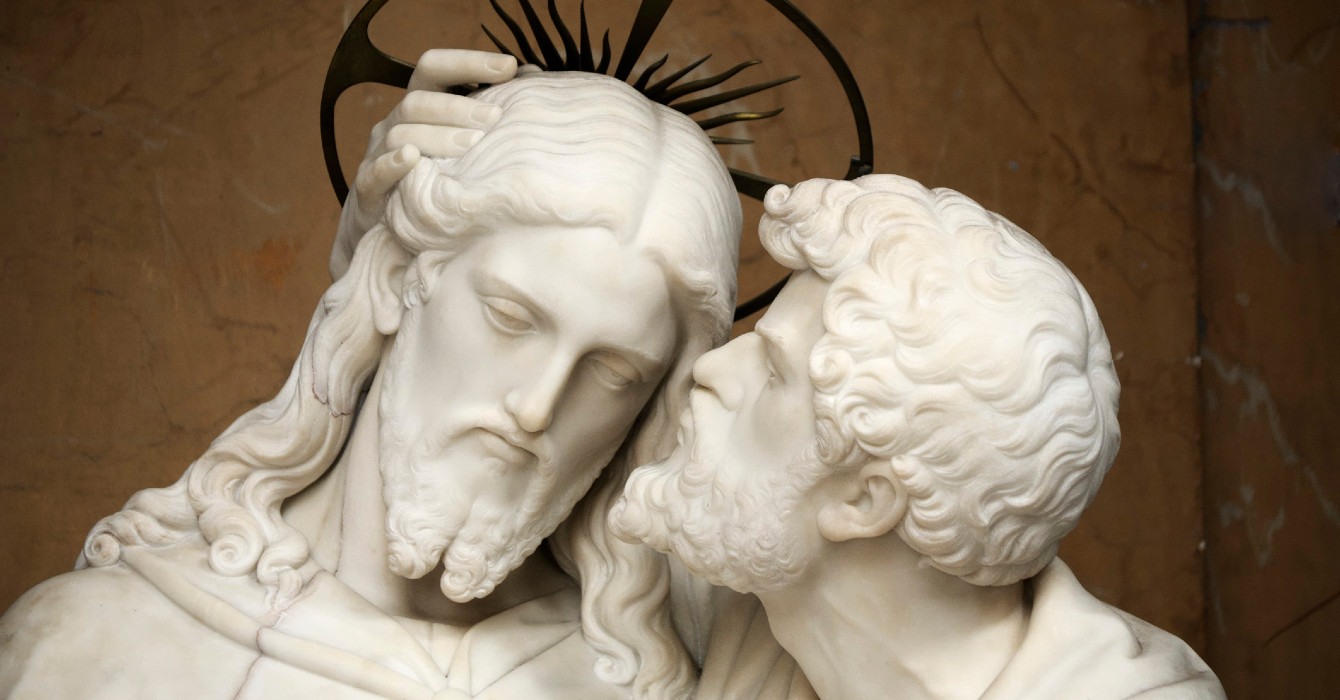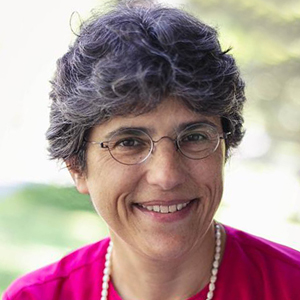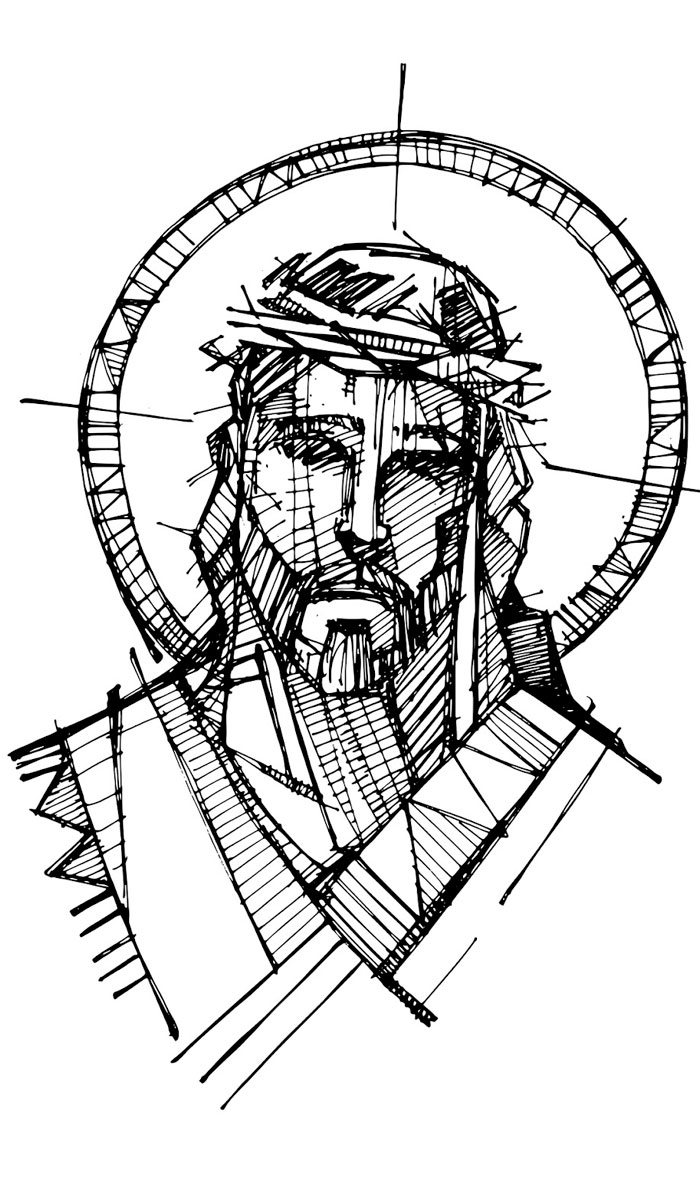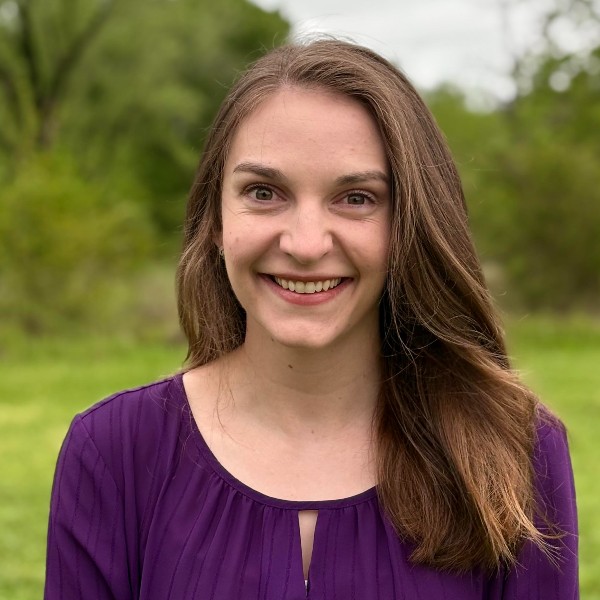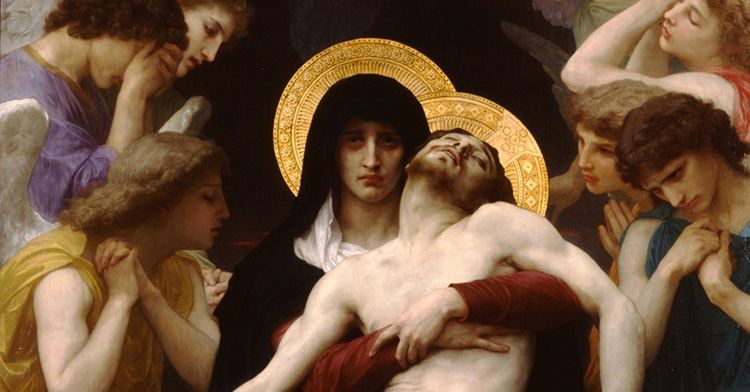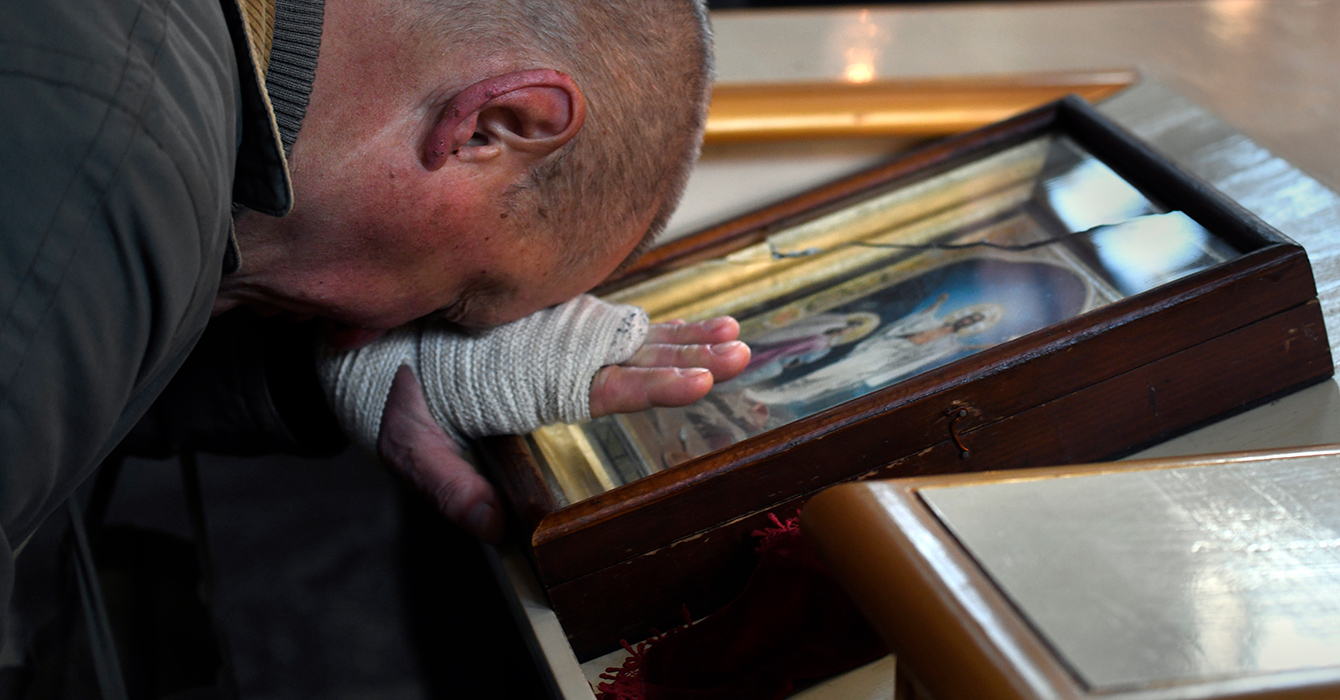Note from the author: The Gospel of John tells us that “while it was still dark” Mary Magdalene made her way to the tomb only to discover that the stone had been rolled away. In the millennia since, Christians have continued the practice of gathering in the darkness, whether through Easter Vigils on Holy Saturday or sunrise services on Easter Day, only to be surprised again by the good news of Easter. In an Easter Vigil, a series of readings from the Hebrew Bible locates the announcement of the resurrection within God’s ongoing work in the world. In this sermon from the 2017 Vigil at the Church of the Advocate in Chapel Hill, N.C., I imagine the disciples and others huddled together, recalling the stories of Israel’s past and wondering whether God might work a miracle even after the horrific events of Good Friday.
The Scriptures don’t tell us when it happened -- only that it happened.
The Scriptures don’t tell us when or how they found each other -- only that, within 48 hours of his death, most of Jesus’ first followers had found each other again and were keeping company with each other in a locked room. Waiting.
You wonder how they felt when they found each other. Were they nervous, scared or ashamed when they first saw each other?
Did they know that the others had run away too? Was there relief or just more guilt when they heard that the others hadn’t stayed to watch Jesus’ crucifixion either? Could they remind each other of Jesus’ own words -- and could they hear them with grace -- “Strike the shepherd and the sheep will scatter”?
Did they know that Peter had denied him -- not once, not twice, but three times? Could the rest of the disciples remind him of Jesus’ words, not in the accusatory way he probably heard them in his head, but in a way that said, “Look, he knew this was coming” -- “Before the cock crows, you will deny me three times”?
Did they know that, of the twelve, only John had stayed to the bitter end of Friday’s horrors? Did they listen to the women tell their stories of waiting and watching as he died -- because, of course, they had stayed?
They knew it was Judas who had done the thing. They had always been a little suspicious of him. Though they all had difficulty understanding the inscrutable Jesus, Judas was the one whose priorities always seemed a bit out of sync. And whatever the encounter in the garden on Thursday night didn’t prove, his absence from the room after Friday confirmed. It was he who had done the thing -- betrayed their Lord.
Scripture doesn’t tell us when it happened, only that, in the swirl of grief and fear, the disciples of Jesus found each other again. And together, behind closed and locked doors, they waited.
They gathered because they needed each other. They gathered the way the survivors of any tragedy gather -- because only within this group do people really understand what happened. You can try to explain it to others, but your story, your feelings, only make sense to other survivors. Only within this group can you support each other in the pain and the shock of it all.
They gathered because they needed to figure out what came next. For three years, this itinerant rabbi had been their life. And now he was dead -- and so, too, were all the dreams they had shared with him. Dreams of a God who loved, a God who cared, a God who was with them. Dreams of a life that was life, a life that was eternal. Dreams of another kingdom, a kingdom he called the kingdom of heaven. All of those dreams seemed to die on Friday too.
The smartest thing would probably be to let things blow over in Jerusalem and then head out of town. They needed to figure out what came next.
Scripture doesn’t tell us when it happened, only that, still in the confusion and emotion of Friday’s loss, their impulse was to gather, behind closed and locked doors, to wait.
But wait ... for what?
Oh, maybe it was just to let things blow over in Jerusalem, let the holiday pass.
But the women and men who huddled together in that room were -- for the most part -- children of the stories we have heard at the Vigil. Every story we tell at the Easter Vigil belonged to them before it belonged to us.
They knew the story of creation and the flood. They knew Abraham and Isaac, Moses and the Red Sea. They had been to Ezekiel’s valley of dry bones. And across their lifetimes, they had learned what God was doing in each of those stories.
They knew that it was God who had formed and fashioned a world full of beauty and wonder and grace from nothing, that it was God who had taken dust and formed it and breathed into it life.
They knew that it was God who, in the face of humanity’s earliest disobedience, had brought about a new beginning through a flood and an ark.
They knew that it was God who, when a son was to be sacrificed, had sent a ram lest the promise of a people and the hope of a nation that would bless the world go unfulfilled.
They knew that it was God who, when the cries of a people enslaved had risen all the way to heaven, had sent a deliverer and made a way through the sea for the sake of freedom.
They knew that it was God who, when death seemed defining, had sent the winds of the Spirit whipping through a valley, raising the dead to life, knitting bone and sinew back together -- “Mortal, can these bones live?” “You, Lord, knowest.”
These were their stories; they knew them in their bones.
So maybe within 48 hours of Jesus’ death, their impulse was to gather, to be together, to wait and to watch and to wonder what God might yet do.
Sisters and brothers, with them, we wait. We wait to see if the God of creation will still breathe life into dust, to see if the God of the ark will still forgive and renew the face of the earth, if the God of the covenant will still keep God’s promise to bless the world, if the God of the exodus will still make a way for freedom, if the God of the valley will still overcome death with the spirit of life.
The good news is that we won’t have to wait long to know.


